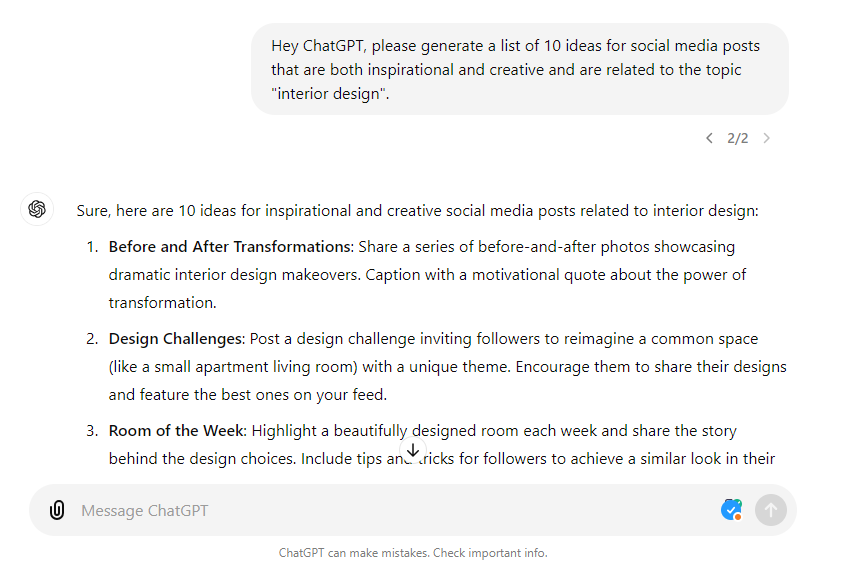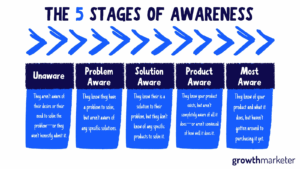Have you ever wondered how social media platforms seem to know precisely the kind of content that will catch your interest? Or how these platforms manage to keep you hooked, scrolling endlessly through a captivating feed of posts and videos?
That’s the power of integrating artificial intelligence (AI) into social media algorithms.
Automated content creation, personalized recommendations, and real-time analytics are just a few AI-powered features that are boosting engagement levels to greater heights.
In this article, I’ll delve deeper into the impact of AI on social media engagement, including some of my proven best practices.
But first, let’s see exactly what AI in social media entails.
Understanding AI in Social Media
Essentially, the role of AI in social media lies in using advanced algorithms and machine learning to analyze the massive amounts of data users create.
This analysis makes it possible for AI to predict user preferences and suggest relevant content. This not only helps improve overall user experience but also boosts engagement and time spent on these platforms.
AI can also greatly improve social media analytics by offering insights into how we behave, feel, and what trends are emerging.
By leveraging AI, social media marketers can gain a deeper understanding of their audience, develop highly targeted campaigns, and evaluate the effectiveness of their strategies.
How AI Is Impacting Social Media Engagement
Now, let’s discuss the impact of AI on social media engagement and what the future might hold in this sphere.
1. Personalized Content Recommendations
One of the most notable impacts of AI on social media engagement is the ability to offer personalized content to users.
With the help of AI-powered tools, algorithms can analyze user behaviours, preferences, and interactions to curate tailored content.
These tools achieve this by evaluating various data points, such as the posts users like, the type of content they share, and even their browsing habits.
This tailored approach ensures that social media users only see content they’re interested in. As a result, they’re more likely to interact with it, whether through liking, sharing, or commenting.
E-commerce stores aren’t left behind, either. If, for instance, you’ve set up an Instagram Shop for Spotify, you can integrate AI with your Shopify store.
This integration can help you boost engagement and drive sales by showcasing products that are most likely to appeal to your target audience.
2. Real-Time Social Media Analytics
AI has revolutionized the way brands understand their customers’ needs and preferences, helping them create strategies that appeal to their audience.
AI-driven analytic tools can monitor and track metrics like shares, comments, and likes in real-time. This immediate insight allows brands to see the content that most resonate with their audience and those that don’t.
Let’s say, for instance, that a brand discovers that a particular post is underperforming. From their analytics, they can deduce that the reason for this could be posting content at off-peak times.
The brand can now make the necessary adjustments to improve the performance of its posts and enhance overall engagement.
They can leverage AI analytic tools to determine when their audience is most active and schedule their posts accordingly.
According to Attrock, you need to post at the right time on social media to get maximum engagement from your audience. There is no mean posting on social media while your targetted audience is not actively engaged.
3. Chatbots, Service Desk software and Virtual Assistants
An effective way to grab your audience’s attention on social media is to provide quick solutions to their needs and ensure quick interactions.
AI-driven chatbots, service desk software and virtual assistance have made this possible, providing instant support and responses to users. Businesses can now attend to their customers’ complaints and inquiries 24 hours a day, seven days a week.
For social media users, this ensures a more seamless and interactive experience. Immediate assistance improves engagement by making interactions more fluid and responsive.
However, that’s not all. These advanced chatbots can handle several other tasks, including:
- Offering personalized product or service recommendations
- Responding to frequently asked questions
- Creating and managing orders
Here’s a great chatbot example. The brand, Domino, has developed a Facebook chatbot to streamline the ordering process. Users can order pizza from virtually anywhere with ease.

4. Automated Content Creation
One of the ways that social media is interrupting the traditional content creation process is through automation.
AI-powered tools like Canva and ChatGPT have made it easier to create engaging and quality content with minimal effort, whether it’s drafting posts, designing graphics, or producing videos.
Here’s an example of how you can use ChatGPT to brainstorm ideas for your social media posts:

These tools are also capable of creating a wide range of content within a short time, from written texts to visuals and multimedia elements.
For social media marketers and managers, this means saving valuable time and resources, allowing them to focus on honing their social media strategy.
This not only boosts productivity but also ensures a consistent flow of engaging content that keeps your audience hooked.
5. Influencer Marketing Optimization
We can’t ignore the power of influencer marketing on brand awareness and engagement.
With the impact of social media, the influence of digital personalities has become a driving force in shaping customer behaviours and perceptions.
With the various types of influencers available today, businesses can find it challenging to find the right one for their brand.
Fortunately, AI has simplified the process.
The technology can help match brands with influencers who have authentic an d engaged followings by analyzing various metrics. These include audience demographics, engagement rates, and content relevance.
This data-driven approach can help improve engagement by ensuring brands connect with influencers that genuinely resonate with their target audience.
Challenges and Ethical Considerations
The impact of AI on engagement cannot be understated. Despite its numerous benefits, it’s important to address the ethical considerations associated with its use on social media.
Let’s discuss these ethical concerns and the measures required to balance this wonderful innovation with responsibility.
User Privacy
Artificial intelligence tools require vast amounts of data to function effectively, including personal information about users. This has raised concerns regarding data privacy, transparency, and consent.
Social media platforms must have clear, easily accessible policies that explain how the data is collected, used, and stored.
Algorithm Bias
AI systems often learn from historical data, which may contain biases. This can lead to unfair or discriminatory outcomes in advertising or content recommendations.
Addressing this algorithm bias requires diversity in data sets used in training AI models, continuous monitoring, and transparency in algorithm decision-making.
Potential Misuse
Artificial intelligence can be used for realistic yet false content, such as deepfakes. This can sadly spread false information and harm individuals or groups.
To combat potential misuse of AI, there needs to be a content verification system that can detect and flag deepfakes or misleading content.
For instance, an AI-powered robot designed to provide online divorce law services can create a problem for its users. They can’t help clients like the human divorce lawyers serve based on their emotions and rules and regulations.
Regulatory bodies must also establish and enforce ethical guidelines for AI use on social media, emphasizing the responsible deployment of AI tools.
Conclusion
As we look into the future, it’s pretty evident that the impact of AI on social media engagement will shape the industry in profound ways.
From enhanced personalization to automated content creation and real-time analytics, AI is set to drive engagement and redefine how we connect online.
For businesses, embracing AI technology offers a competitive edge, enabling more effective marketing strategies and deeper connections with audiences.
For users, AI promises a more tailored and interactive experience, making social media a more engaging and enjoyable space.



